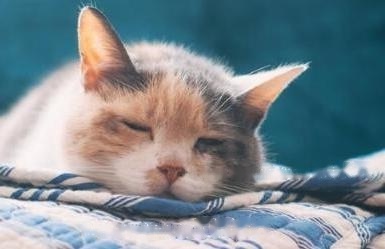Diarrhea, which is diarrhea, is a mild or serious disease for cats. Some of them can heal on their own. Serious or even life-threatening. Diarrhea is especially deadly for kittens, so it's a small but not to be underestimated disease. So is cat diarrhea dangerous? What is the general cause of cat diarrhea?
Is cat diarrhea dangerous?
If the cat has diarrhea, it is not very good Soft stools or mushy thick stools with no obvious fishy smell, and no symptoms such as vomiting, fever, loss of appetite and lack of energy, may be what we often call not eating well or catching a cold. At this point, we need to reflect on whether we have changed the food for the cat?
Or the meat or canned food is not fresh? Is it frozen? If so, please correct it in time and give it to the cat Fast for 12-24 hours. Don't cut off the water! At the same time, you can feed some drugs that regulate intestinal function such as the six species of Gudeng. In addition, if your cat is taking certain medicines, you also need to check whether the side effects of the medicines may cause diarrhea.
Severe diarrhea occurs when the cat excretes frequently and the stool is watery. At this time, the cat's stool is often accompanied by a pungent stench, and sometimes jelly-like mucus or even blood. At this time, the first thing we should do is to fast, not to give it any more food, and to add a lot of water at the same time.
Because diarrhea can easily lead to dehydration, especially in kittens, it can even be fatal. Therefore, when the cat has severe diarrhea, if the cat does not take the initiative to drink water, please try to give it enough water. At the same time, you can feed some mommy love and montmorillonite powder. If the cat's condition does not improve within 24 hours, please take the cat to the hospital as soon as possible.
Tips: Diarrhea in kittens is a very dangerous thing. Once watery stools appear, be sure to stop diarrhea immediately, otherwise it is easy to die of dehydration.

What are the common causes of cat diarrhea?
Let's talk about what happens in the gut
1. Diet reasons. Dietary causes are the leading cause of acute diarrhea and the easiest to address. Specifically, it includes overeating, sudden changes in diet, intolerance or allergy to food (allergy and intolerance are two concepts, food intolerance refers to the cat's inability to digest the food, such as lactose. Food allergy refers to immunity Abnormal reaction of the system to food, symptoms not only diarrhea.), food poisoning, etc. Food intolerance is by far the most common cause of food-related diarrhea in cats, predisposing to osmotic diarrhea.
2. Viral and bacterial infections. Mainly Salmonella, Campylobacter and Escherichia coli. Easily lead to secretory diarrhea.
3. Inflammatory bowel disease (IBD). IBD is a persistent inflammation of the gastrointestinal tract without any identifiable pathogen or trigger and is one of the most common causes of chronic diarrhea in cats.
4. Parasitic diseases. Including nematodes, Giardia, and Trichomonas.
Second, extraintestinal reasons
1. Pancreatic exocrine insufficiency (PEI). Normally, digestive enzymes are secreted into the duodenal lumen during eating. With EPI, the progressive loss of islet acinar cells results in insufficient secretion of digestive enzymes into the duodenal lumen, resulting in food not being digested properly. The most common symptoms are abdominal pain and diarrhea, usually watery stools.
2. Hyperthyroidism. Hyperthyroidism is the so-called hyperthyroidism, which is due to the excessive secretion of thyroid hormones, resulting in increased excitability and hypermetabolism of the body's nervous, circulatory and digestive systems. Diarrhea and overeating are symptoms of an abnormally overactive metabolism.
3. Liver disease and kidney failure. Liver disease will cause the body to release more histamine, which will increase the permeability of the intestinal mucosal blood vessel wall, promote the increase of intestinal secretion, and then cause diarrhea. Kidney failure can also cause diarrhea, but diarrhea is not the only symptom, so other symptoms of kidney failure can be used to determine whether it is diarrhea caused by kidney failure, such as frequent urination, oliguria, etc.
![[Dog Training 5] The training method of pet dog dining etiquette](/static/img/12192/12192_1.jpg)




